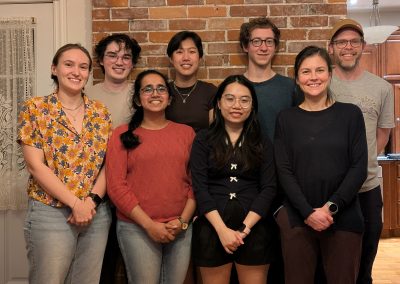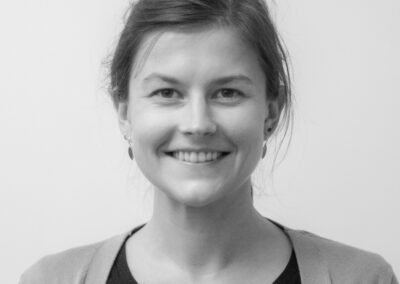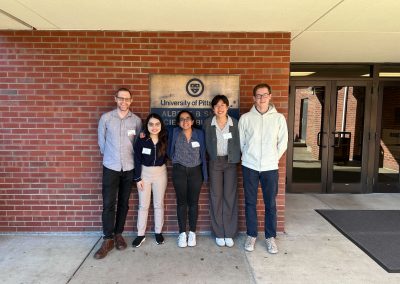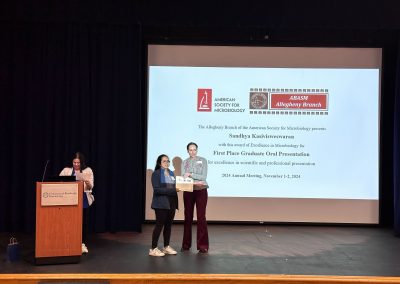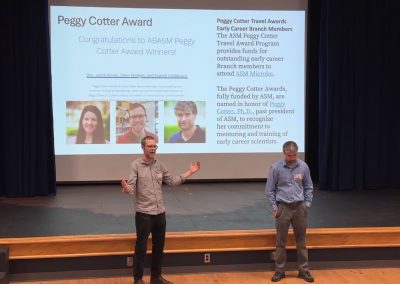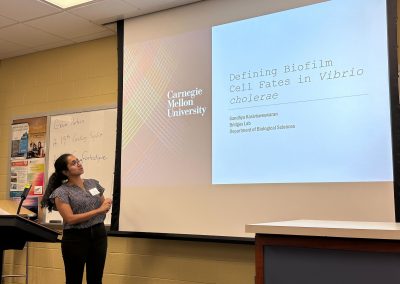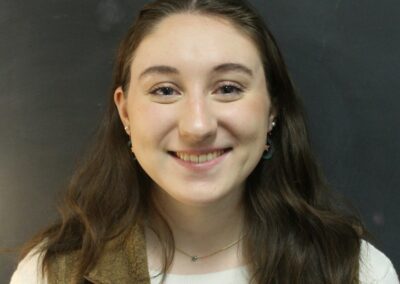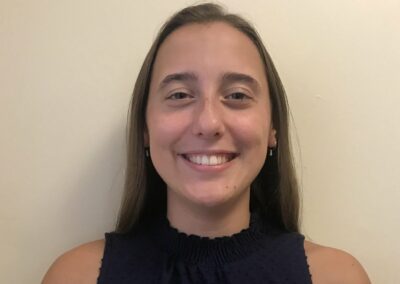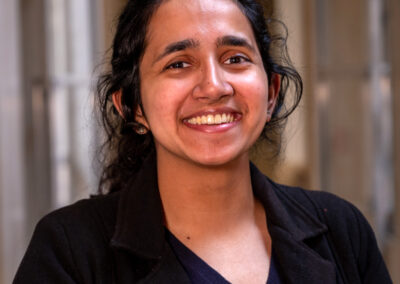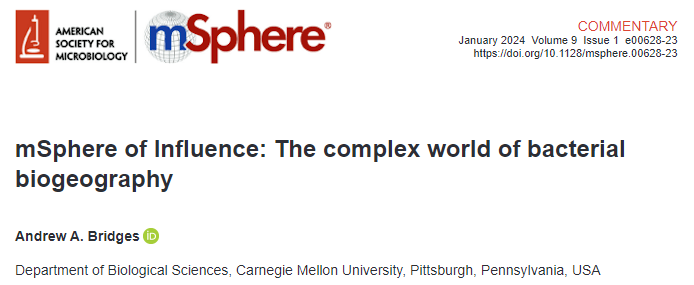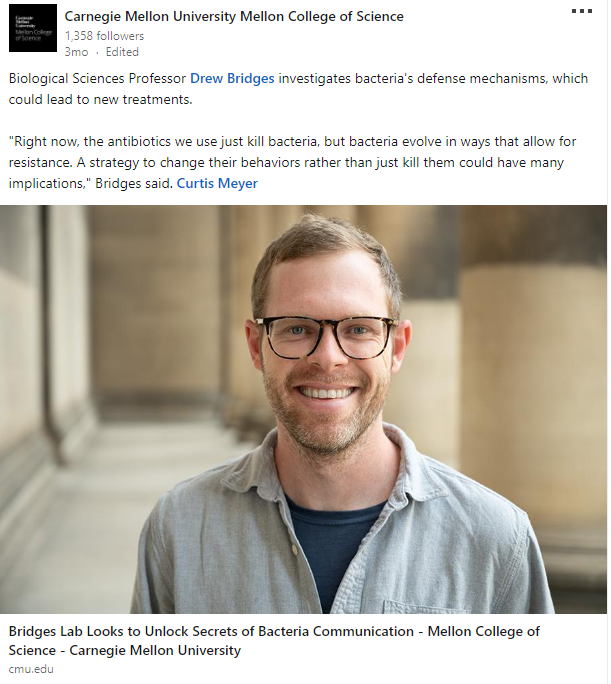Bridges Lab @ CMU

About
About Us
In the Bridges lab we use diverse approaches to study how bacteria make developmental decisions based on extracellular sensory information. Read about our research for more information. In addition, we strive to cultivate a healthy and productive scientific environment!
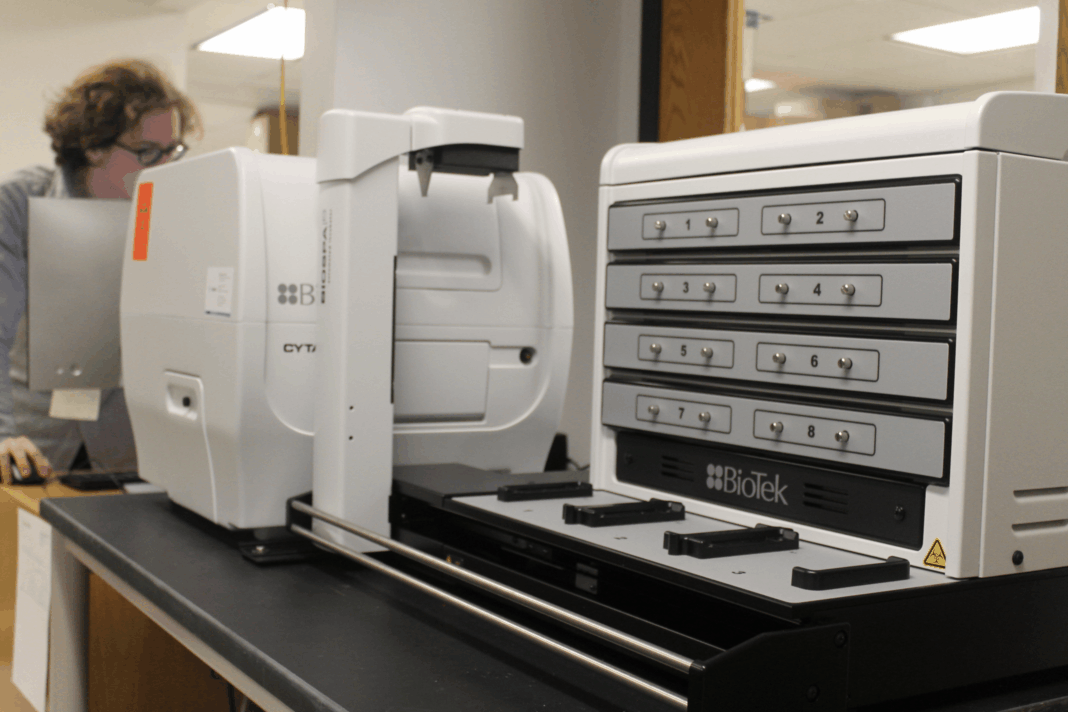
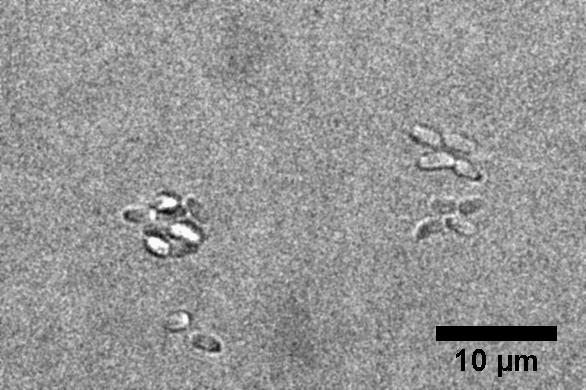
News
Lab News
PhD student Jesse Derringer joins the lab!
May 2, 2025: The Bridges lab welcome Jesse Derringer as the latest PhD student to join our ranks. Jesse hails from Virginia and prior to enrolling in our graduate program completed his MS in Chemistry at William & Mary College. When he is not thinking about science, Jesse is probably out on a walk, asking random questions, or looking for humor in everyday life.
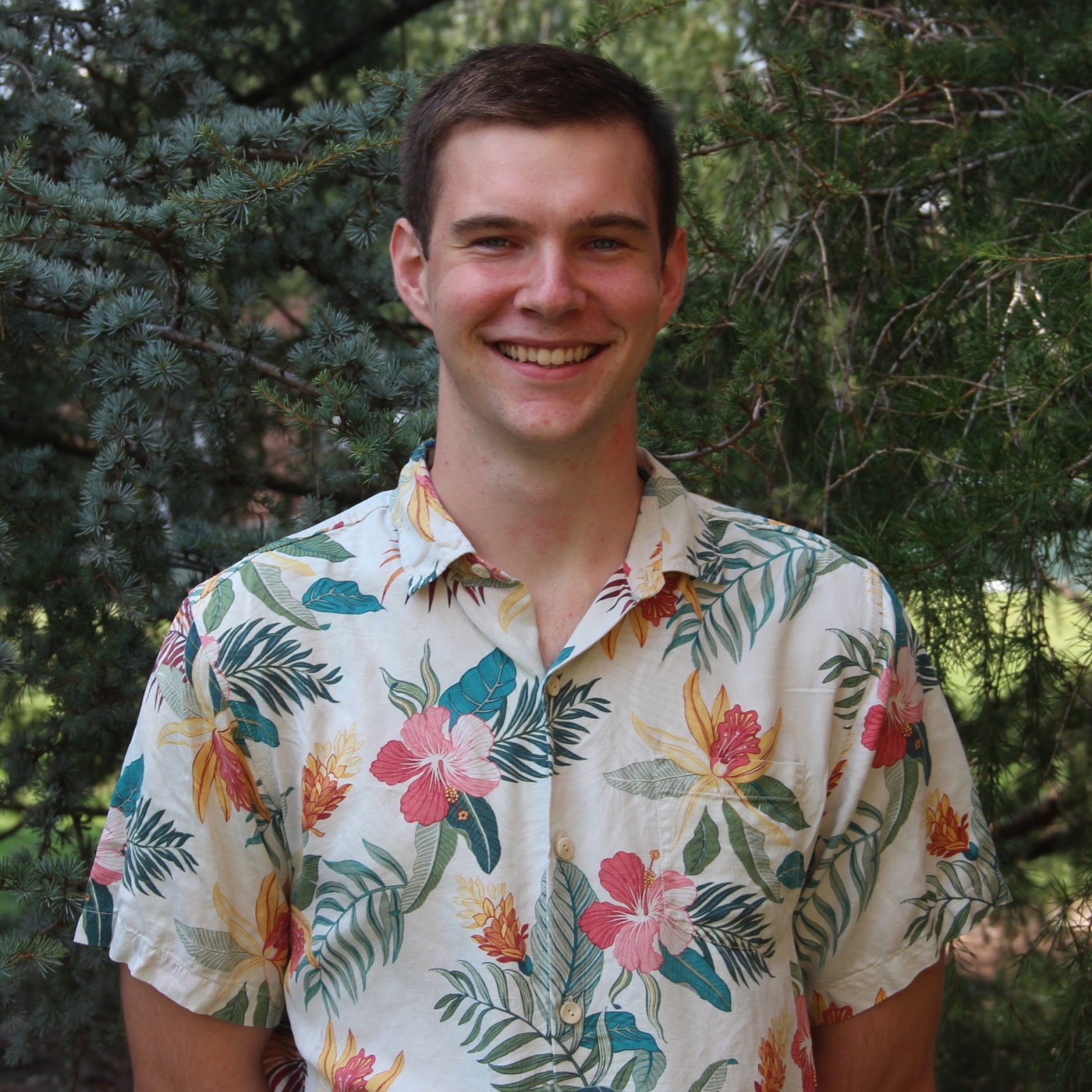
April 2025: Jojo is awarded the NSF Graduate Research Fellowship

Congratulations to Jojo Prentice, who received the NSF GRFP. This impressive accomplishment was especially competitive this year and is very well deserved. Jojo, a founding member of the Bridges lab has made strides as a post-baccalaureate researcher. In the Fall, he will start a new adventure as a PhD student in Ecology and Evolutionary Biology at Yale University. He will be missed!
March 24, 2025: New preprint!
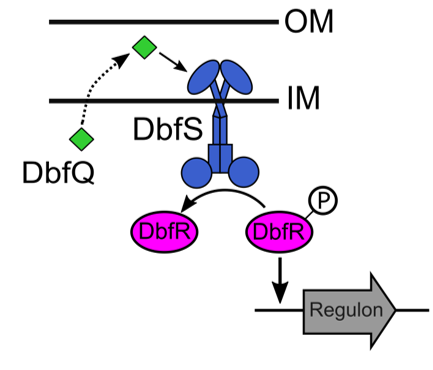
Our work, entitled “A small periplasmic protein governs broad physiological adaptations in Vibrio cholerae via regulation of the DbfRS two-component system,” was just preprinted on bioRxiv. To survive in diverse niches, bacteria rely on two-component sensors to convert environmental stimuli into appropriate cellular responses. Here, we use a multidisciplinary approach to characterize a novel and conserved two-component system that controls the biofilm lifecycle of the global pathogen Vibrio cholerae. The DbfRS two-component system is comprised of a third participant, a small, periplasmic protein, DbfQ, which directly interacts with and controls the activity of the receptor. Pathway activity is sensitive to membrane stress and globally regulates multicellularity, metabolism, and cell envelope biosynthesis. Together, our study positions DbfQRS as a stress-responsive circuit with broad physiological roles and highlights its potential as a target for anti-infective therapy. Check it out!
November 26, 2024: New paper alert!
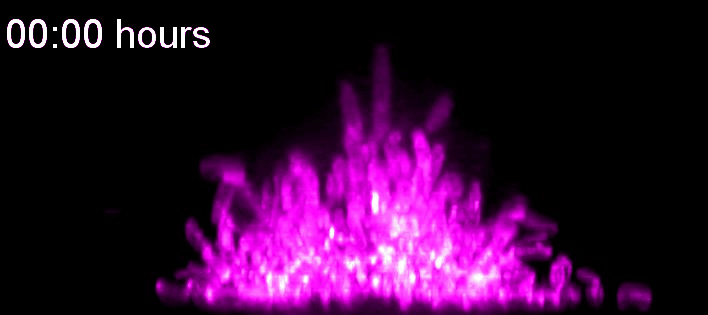
Our work, entitled “Biofilm dispersal patterns revealed using far-red fluorogenic probes,” was just published in PLOS Biology. Bacteria frequently colonize niches by forming multicellular communities called biofilms. To explore new territories, cells exit biofilms through an active process called dispersal. Biofilm dispersal is essential for bacteria to spread between infection sites, yet how the process is executed at the single-cell level remains mysterious due to the limitations of traditional fluorescent proteins, which lose functionality in large, oxygen-deprived biofilms. To overcome this challenge, we developed a cell-labeling strategy utilizing fluorogen activating proteins and cognate far-red dyes, which remain functional throughout biofilm development, enabling long-term imaging. Using this approach, we characterize dispersal at unprecedented resolution for the global pathogen Vibrio cholerae. We reveal that dispersal initiates at the biofilm periphery and ~25% of cells never disperse. We define novel micro-scale patterns that occur during dispersal, including biofilm compression during cell departure and regional heterogeneity in cell motions. These patterns are attenuated in mutants that reduce overall dispersal or that increase dispersal at the cost of homogenizing local mechanical properties. Collectively, our findings provide fundamental insights into the mechanisms of biofilm dispersal, advancing our understanding of how pathogens disseminate. Moreover, we demonstrate the broad applicability of fluorogen activating proteins as a powerful tool for high-resolution studies of microbial dynamics in complex environments. Check it out!
November 8, 2024: Yangyang wins poster presentation award at the Rust Belt Microbiome meeting!
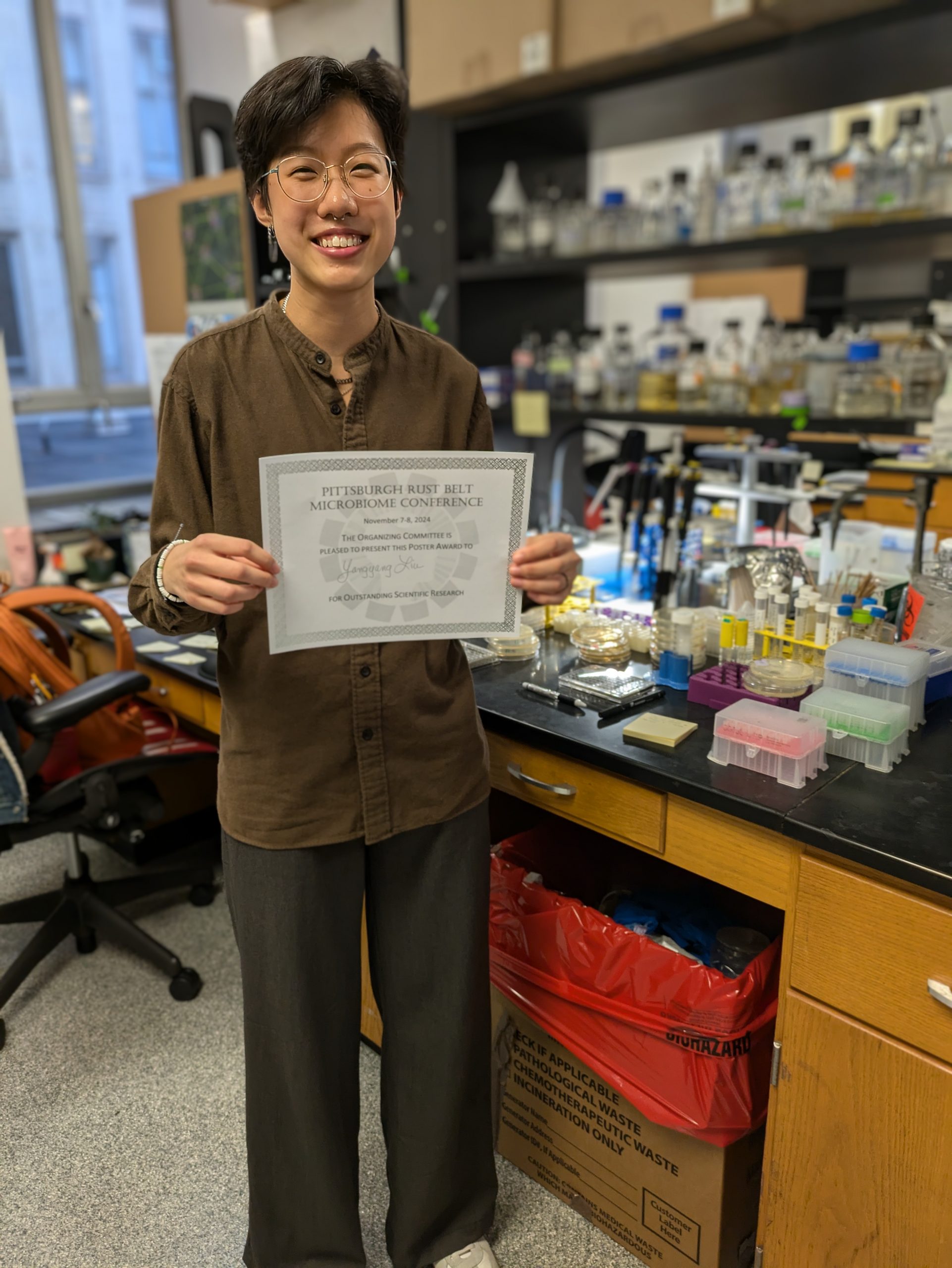
October 23, 2024: Jojo presents his research on bacterial lysis sensing at the International Meeting on the Biology of Vibrios in Peru!
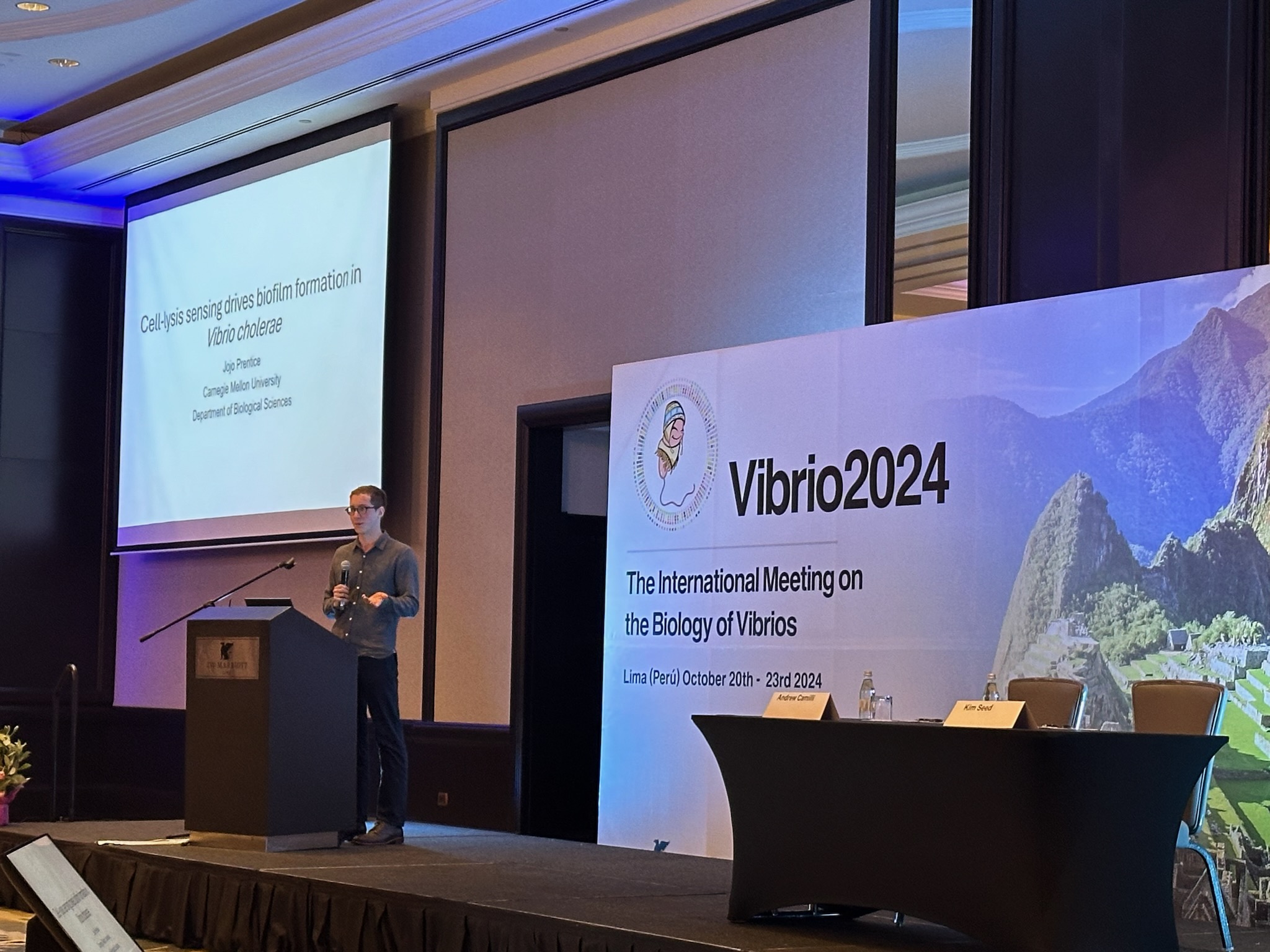
August 10, 2024: Graduate students present their work at the Molecular Genetics of Bacteria and Phages Meeting.

PhD students Emmy, Sandhya and Yangyang presented their work in Madison, Wisconsin this week. Emmy gave an oral presentation to a huge crowd while Sandhya and Yangyang gave marathon poster presentations! Sandhya won a poster award – a monumental achievement! We look forward to attending the meeting again soon.
July 15, 2024: Preprint alert!

Our work, entitled “Biofilm dispersal patterns revealed using far-red fluorogenic probes,” was just preprinted on biorXiv. Biofilm dispersal is essential for bacteria to spread between infection sites, yet how the process is executed at the single-cell level remains mysterious. Here, we characterize dispersal at unprecedented resolution for the global pathogen Vibrio cholerae. To do so, we first developed a far-red cell-labeling strategy that overcomes pitfalls of fluorescent protein-based approaches. We reveal that dispersal initiates at the biofilm periphery and ∼25% of cells never disperse. We define novel micro-scale patterns that occur during dispersal, including biofilm compression and the formation of dynamic channels. These patterns are attenuated in mutants that reduce overall dispersal or that increase dispersal at the cost of homogenizing local mechanical properties. Collectively, our findings provide fundamental insights into the mechanisms of biofilm dispersal, advancing our understanding of how pathogens disseminate. Check it out!
Gillian and Maddy graduate!
May 11, 2024: The first class of Bridges Lab undergraduate students Gillian Croteau and Maddy Burke have officially graduated! Both recieved honors for research credit in their senior year. Gillian is off to Northeastern University to pursue her PhD and Maddy is applying to medical school.
Gillian wins the Carnegie Mellon Sigma Xi Poster Competition!
May 2, 2024: Graduating senior Gillian Croteau wins the poster competition at the annual Meeting of the Minds event on campus! Congrats Gillian!
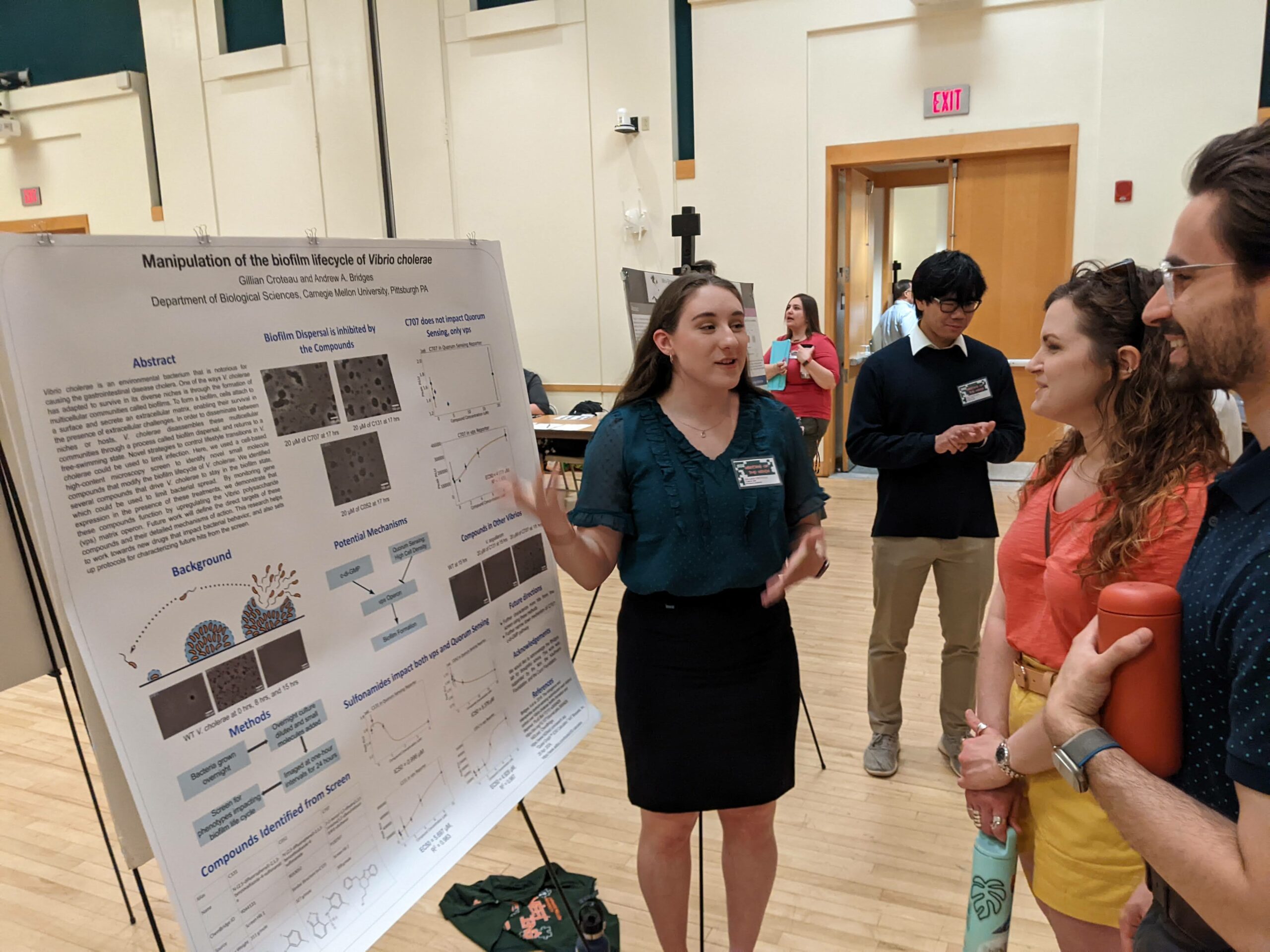
PhD student Yangyang Liu join the lab!
April 22, 2024: The Bridges Lab is delighted to welcome Yangyang Liu to the lab. Yangyang will study bacterial lysis sensing in diverse pathogens. We can’t wait to see what Yangyang will discover!

March 6, 2024: The first Bridges lab manuscript it out!
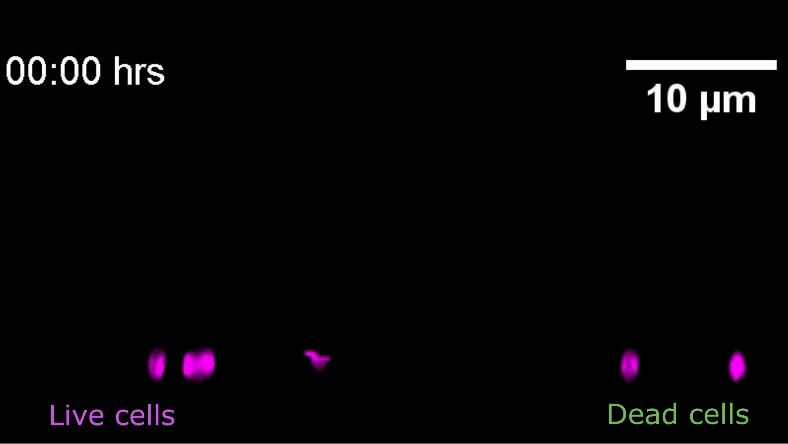
Our work, entitled “Cell lysis sensing drives biofilm formation in Vibrio cholerae,” was published in Nature Communications. We find that upon exposure to lytic phages, the pathogen V. cholerae rapidly lyses, but then recovers, with surviving cells exhibiting robust biofilm formation. We find that the mechanism underlying this observation is a process we refer to as “lysis sensing”…whereby surviving cells sense a signal released by the death of their kin. We identify the cell lysis signal as an abundant cytoplasmic polyamine, norspermidine, which is detected by an inner-membrane receptor, MbaA, that in turn drives biofilm formation. We determine that additional pathogenic organisms also exhibit multicellular community formation in response to lysis. Given the pervasiveness of lysis in the environment, we propose that lysis sensing is a threat-agnostic mechanism by which bacteria can gauge endangerment.
Feb 11, 2024: Irina hits the big time on CMU’s Instagram. Happy International Women and Girls in Science day!
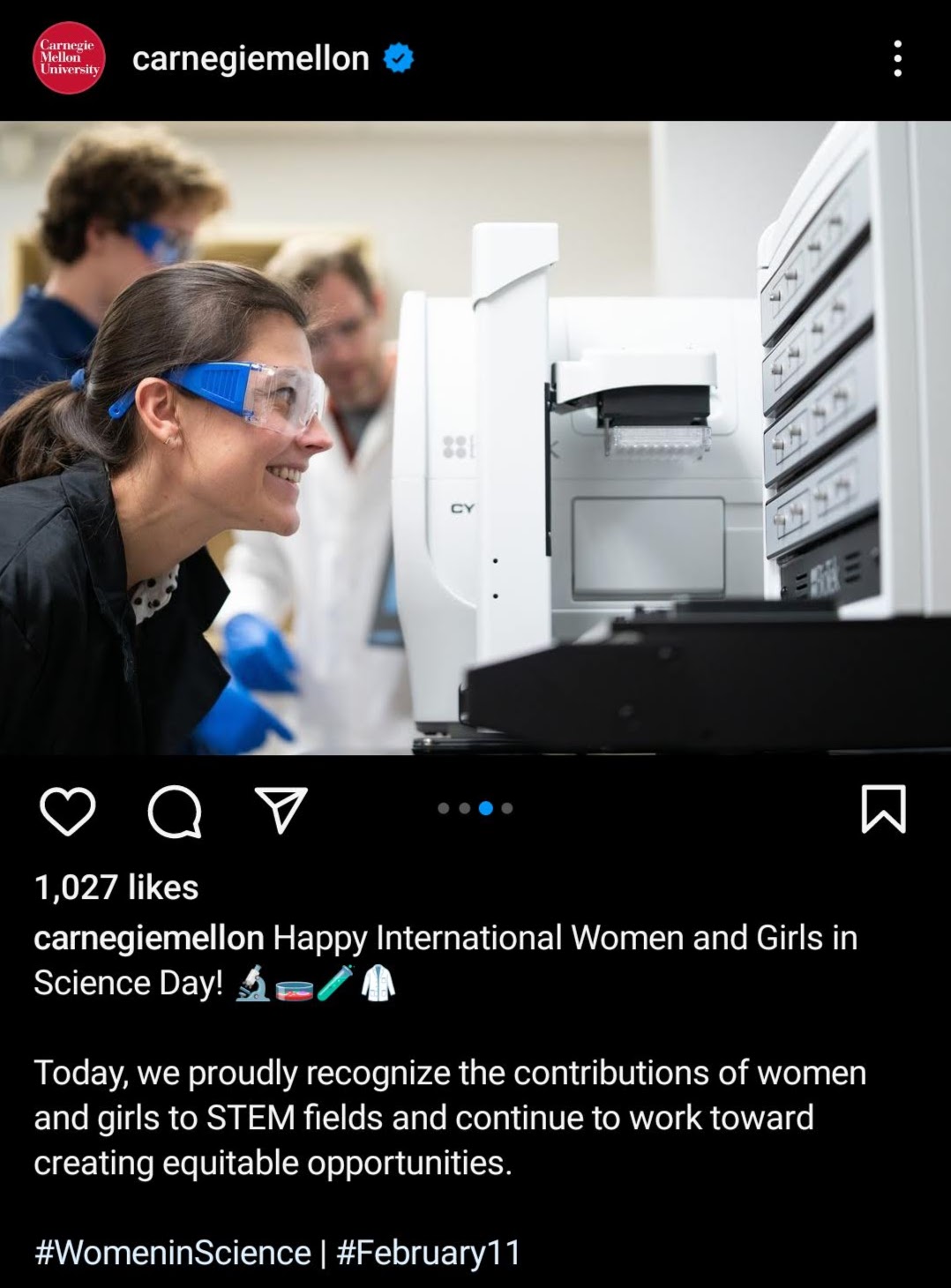

Robert van de Weerd joins
Nov 1, 2022: The latest member to join the group is Robert van de Weerd, originally from the Netherlands. Robert’s interests include biotechnology development and molecular pathogenesis.

Irina Mikheyeva joins the lab
Oct 1, 2022: The newest member of the lab is Irina Mikheyeva. Irina’s interests include molecular pathogenesis, signal transduction, as well as hiking and biking.
Sept 23, 2022: Drew is named a 2022 Blavatnik Regional Award Finalist for his postdoctoral research on Vibrio cholerae biofilm dispersal.
2022 Blavatnik Regional Awards Finalist 🏅 Dr. Andrew Bridges studies the lifecycles of bacterial #biofilms. He uncovered the lifecycle of v. cholerae, the bacteria that causes #cholera @Bridges_Bio @Princeton @cmuscience https://t.co/nh8ecwPsU7@nationalpostdoc #NPAW2022 pic.twitter.com/oefF75A8n7
— Blavatnik Awards (@BlavatnikAwards) September 21, 2022
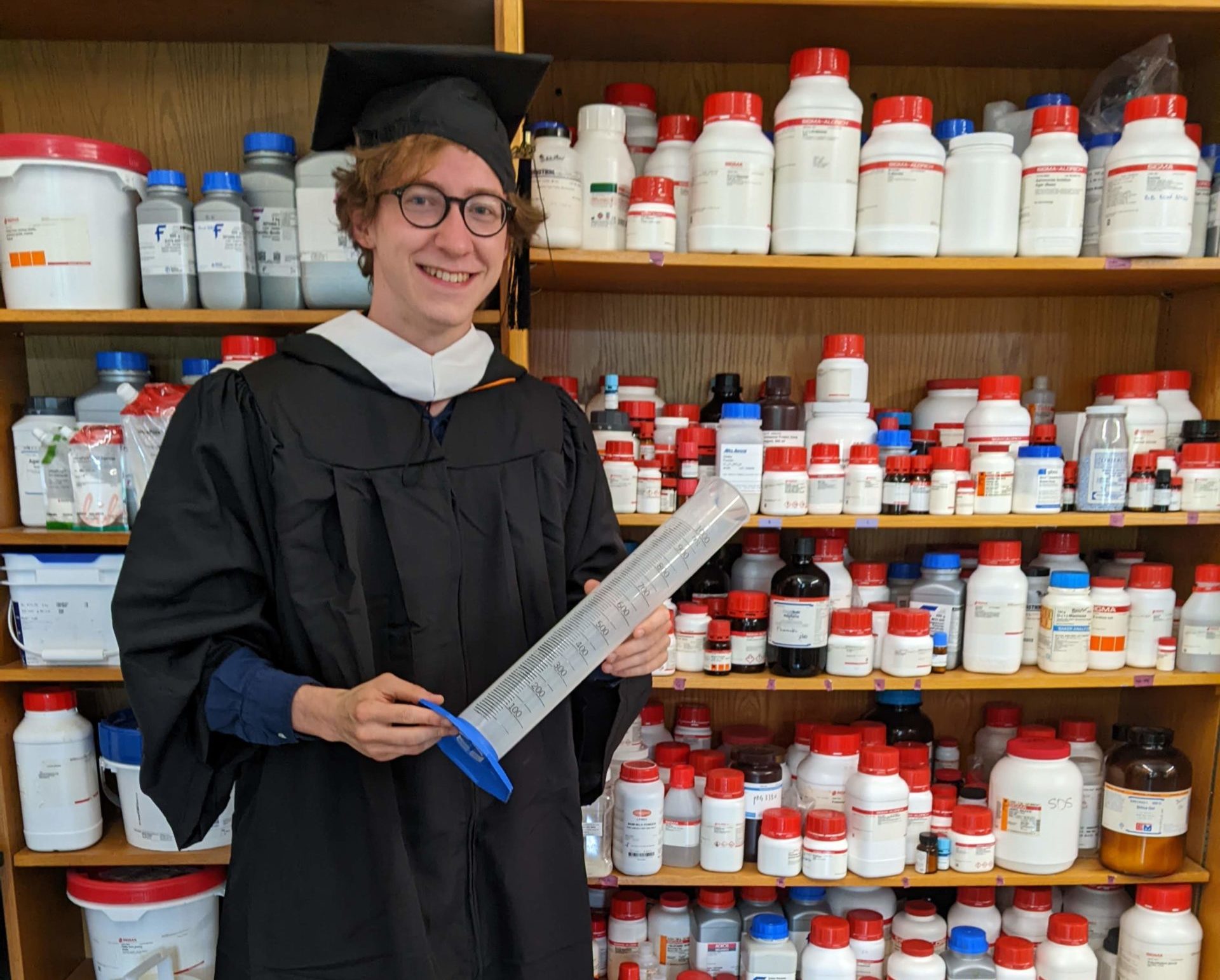
Jojo Prentice joins the lab

